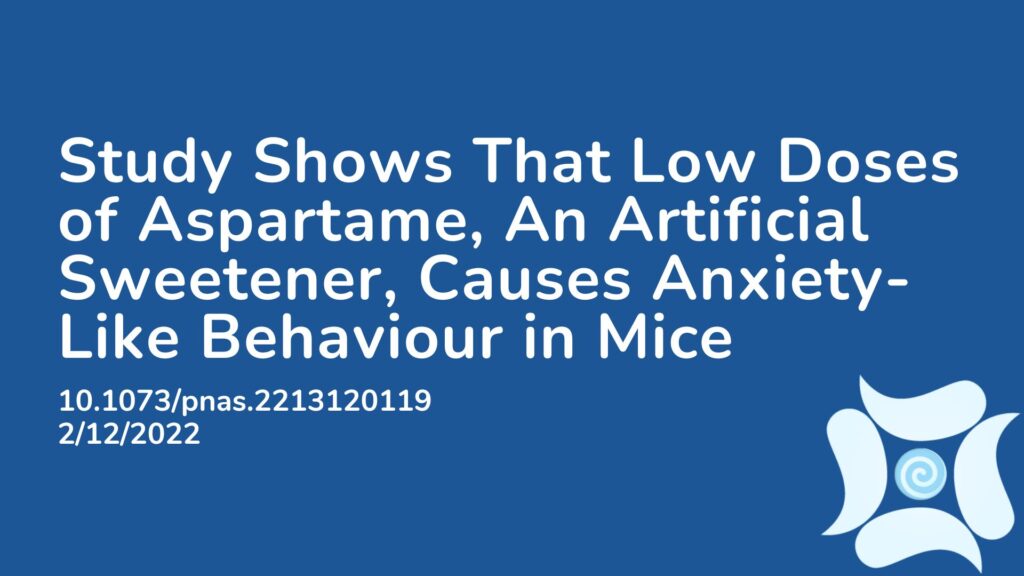Summary:
Aspartame is an artificial sweetener commonly used as a sugar replacement in low-calorie drinks and foods. It was approved by the FDA in 1981 and has rapidly increased in use since this date, estimated to be included in approximately 5,000 products consumed by children and adults, including pregnant women. When aspartame is consumed it breaks down into aspartic acid, phenylalanine and methanol, all of which literature has shown can modify the function of the central nervous system. This paper, published by Florida State University College of Medicine, has linked aspartame to anxiety-like behavior in mice. The anxiety-like effects also extended up to two generations from the mice exposed to aspartame. The dose given to the mice was below 15% that of the maximum daily intake recommended by the FDA, which is the amount set that can be safely consumed per day. Whilst this is an animal study, it does suggest that aspartame consumption at doses below the FDA recommended intake may cause neurological changes.
Abstract:
We report the effects of aspartame on anxiety-like behavior, neurotransmitter signaling and gene expression in the amygdala, a brain region associated with the regulation of anxiety and fear responses. C57BL/6 mice consumed drinking water containing 0.015% or 0.03% aspartame, a dose equivalent of 8 to 15% of the FDA recommended maximum human daily intake, or plain drinking water. Robust anxiety-like behavior (evaluated using open field test and elevated zero maze) was observed in male and female mice consuming the aspartame-containing water. Diazepam, an allosteric modulator of the GABA-A receptor, alleviated the anxiety-like behavior. RNA sequencing of the amygdala followed by KEGG biological pathway analysis of differentially expressed genes showed glutamatergic and GABAergic synapse pathways as significantly enriched. Quantitative PCR showed upregulation of mRNA for the glutamate NMDA receptor subunit 2D (Grin2d) and metabotropic receptor 4 (Grm4) and downregulation of the GABA-A receptor associated protein (Gabarap) mRNA. Thus, taken together, our diazepam and gene expression data show that aspartame consumption shifted the excitation-inhibition equilibrium in the amygdala toward excitation. Even more strikingly, the anxiety-like behavior, its response to diazepam, and changes in amygdala gene expression were transmitted to male and female offspring in two generations descending from the aspartame-exposed males. Extrapolation of the findings to humans suggests that aspartame consumption at doses below the FDA recommended maximum daily intake may produce neurobehavioral changes in aspartame-consuming individuals and their descendants. Thus, human population at risk of aspartame’s potential mental health effects may be larger than current expectations, which only include aspartame-consuming individuals.
Article Publication Date: 2/12/2022
DOI: 10.1073/pnas.2213120119




